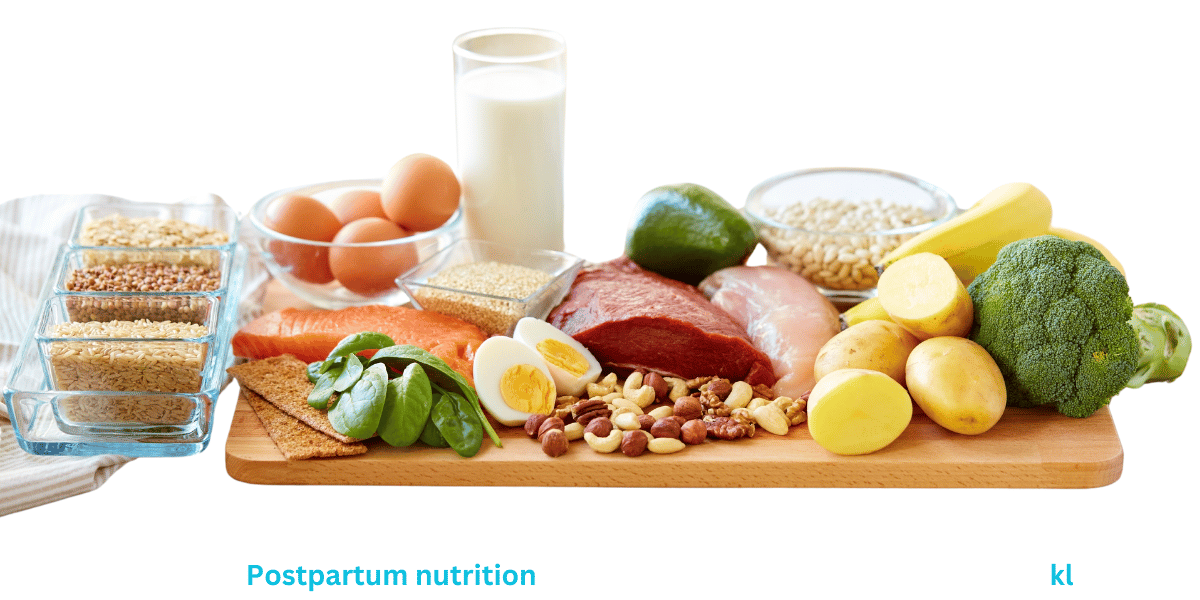Postpartum recovery is no joke—it’s a time of healing, adjustment, and, let’s be honest, a little bit of chaos. Between late-night feedings and navigating life with a newborn, it’s easy for moms to put their own needs on the back burner.
But here’s the deal: nutrition greatly affects how quickly and effectively your body recovers. Whether you’ve had a vaginal birth or a C-section, the right postpartum recovery meals can help you heal, regain energy, and feel more like yourself again. That’s why proper nutrition is a must in any postpartum recovery guide.
In this guide, we’ll explore Quick & Easy Postpartum Nutrition for Vaginal & C-Section Recovery and practical tips to help you feel your best during this important phase. Let’s get you fueled and on the path to recovery!
Why Postpartum Nutrition Matters for Healing and Energy
Your body has been through a lot during pregnancy and delivery, and postpartum nutrition is essential for repairing tissues, balancing hormones, and replenishing energy.
Think about it—your body just performed a miracle and needs some TLC (Tender, Loving, Care ). Postpartum healing foods, like iron-rich spinach, protein-packed eggs, and omega-3-rich salmon, give your body the building blocks it needs to heal from the inside out.
Energy is another big reason to focus on nutrition. Newborn care is demanding, and running on empty is not sustainable. Incorporating new mom meal ideas, like quick oatmeal bowls with nuts and berries or protein smoothies, can give you the energy boost you need without taking up a lot of your precious time.
Differences in Nutritional Needs for Vaginal and C-Section Recovery
Here’s something I didn’t realize at first: recovery looks different depending on how you delivered. Vaginal birth recovery benefits from foods that promote overall healing and energy, like whole grains, fresh fruits, and plenty of water to help with hydration and bowel movements.
C-section recovery, on the other hand, often requires a little more attention to specific nutrients that support wound healing and reduce inflammation.
Foods like bone broth, which is rich in collagen, and vitamin C-packed citrus fruits are fantastic for this. A postpartum diet plan tailored to C-section recovery might also include more protein for tissue repair and fiber to help with post-surgery digestion.

Common Postpartum Nutritional Deficiencies
It’s also worth noting that many moms face postpartum nutritional deficiencies. Iron, for example, is often depleted after delivery, especially if there is significant blood loss. Incorporating iron-rich foods like lean meats, lentils, and fortified cereals can make a big difference.
Calcium is another nutrient many moms overlook, especially if they’re breastfeeding. Your baby’s need for calcium doesn’t stop after birth, so make sure to stock up on sources like dairy, leafy greens, and fortified plant-based kinds of milk.
Omega-3s are also critical for supporting your mood and brain health, which is why salmon or a quality fish oil supplement can be a postpartum nutrition essential.
Essential Nutrients for Healing
Focusing on key nutrients during this time isn’t just about bouncing back; it’s about giving your body the tools it needs to heal and feel strong again. Here’s a breakdown of the essential nutrients for healing and how they work their magic.
Protein for Tissue Repair and Strength
Protein is a superstar nutrient for postpartum recovery. It helps repair tissues, build strength, and keep your energy levels steady throughout the day. Think lean meats, eggs, beans, lentils, and even a quick protein shake if you’re short on time.
For me, adding protein-rich snacks like Greek yogurt or hard-boiled eggs was a lifesaver during those busy early weeks. It’s one of the simplest ways to support tissue healing and regain strength after delivery.
Iron for Energy and Replenishing Blood Loss
After childbirth, especially if you experience significant blood loss, your iron levels might take a hit. This can leave you feeling drained, foggy, and just plain exhausted.
Iron-rich foods postpartum, like spinach, lean red meat, and fortified cereals, are essential for rebuilding your blood supply and restoring your energy. Pair these with a source of vitamin C, like oranges or bell peppers, to boost absorption—it’s a game-changer!
Omega-3s for Reducing Inflammation
Inflammation is a common issue postpartum, whether from a C-section incision or the overall stress your body endured during delivery. Omega-3 foods postpartum, like salmon, walnuts, and chia seeds, are anti-inflammatory heroes that can help your body heal faster.
Plus, omega-3s have the bonus of supporting mental health, which is so important during the emotional rollercoaster of the postpartum period.

Vitamins for Overall Recovery
A good mix of vitamins is crucial for recovery. Vitamin C promotes wound healing and collagen production, making it great for both vaginal and C-section recoveries.
Vitamin D supports your immune system, which is especially important when you’re sleep-deprived and taking care of a newborn. B-complex vitamins, like B6 and B12, are amazing for energy and brain health, while vitamin E helps with skin repair and elasticity.
A balanced postpartum diet plan, packed with colorful fruits and vegetables, can help you hit these vitamin goals naturally.
Calcium and Magnesium for Bone and Muscle Health
Pregnancy and breastfeeding can deplete your body’s calcium stores, so replenishing them postpartum is a must. Calcium for new moms can be found in dairy products, fortified plant-based milks, and leafy greens like kale.
Magnesium, often paired with calcium, helps with muscle relaxation and overall recovery, making it ideal for easing aches and cramps. Together, they’re a powerhouse for postpartum recovery and long-term wellness.
Healthy Fats for Energy and Hormonal Balance
Don’t shy away from fats—they’re an essential part of healing. Healthy fats postpartum, like avocados, olive oil, and nuts, provide sustained energy and support hormone production.
They’re also key for brain health, which is critical for managing the mental load of being a new mom. A handful of almonds or a drizzle of olive oil on your salad can go a long way in boosting your recovery.
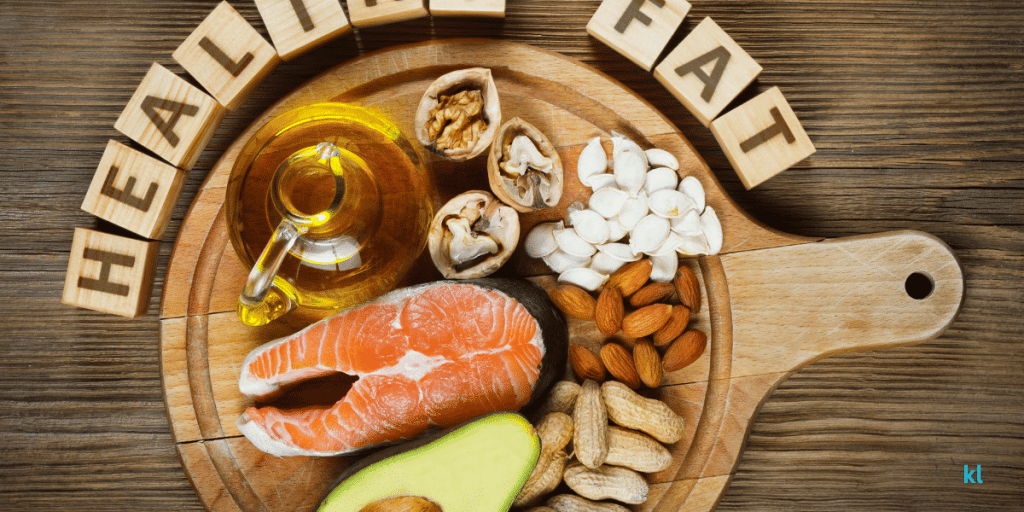
Hydration
When you’re recovering postpartum, staying hydrated isn’t just a nice-to-have—it’s essential. Your body has been through a lot, and hydration plays a huge role in your recovery, energy levels, and even milk production if you’re breastfeeding.
The Importance of Staying Hydrated for Milk Production and Recovery
You may already know that water is crucial for staying hydrated, but during the postpartum period, it’s even more important. If you’re breastfeeding, hydration directly impacts your milk production.
Breast milk is made up of around 90% water, so when your body is dehydrated, you might notice your milk supply dip. In addition to milk production, proper hydration also supports your body’s healing process, reduces postpartum swelling, and helps with digestion.
Pro Tip: Keep a water bottle by your side at all times, whether you’re nursing, resting, or even during the night. Set a timer or reminder if you tend to forget—staying on top of hydration is key to maintaining both energy and recovery.
Easy Ways to Boost Hydration
Sometimes, plain water just doesn’t cut it—especially when you’re running on fumes and need a little more than hydration to lift your mood. Thankfully, there are plenty of ways to boost hydration that also support your healing:

- Infused water: Add some flavor to your water with fruits, herbs, or even cucumber. Not only will it taste better, but it might even encourage you to drink more.
- Herbal teas: Postpartum herbal teas like peppermint, chamomile, or ginger can help with digestion, relax your body, and soothe any cramps or discomfort. Plus, they’re hydrating! Just make sure to check with your doctor to avoid any herbs that might interfere with breastfeeding.
- Healing drinks: There are some amazing hydrating drinks designed specifically for new moms. Consider sipping on coconut water for electrolytes or making a simple homemade electrolyte drink by adding a pinch of sea salt, lemon, and honey to your water.
Bonus Tip: Keep a variety of beverages within easy reach. That way, when you’re tired or feeling overwhelmed, you’ve got options that’ll tempt you to stay hydrated.
It doesn’t hurt to have a favorite tea or healing drink on hand for those moments when self-care feels just a bit more important than the next diaper change.
Supplements and Nutritional Support
After childbirth, your body has been through a lot, and supporting your recovery with the right postpartum supplements is one of the best ways to ensure you’re getting all the nutrients you need.
Even if you’re eating a balanced diet, sometimes the demands of new motherhood can make it hard to get everything you need from food alone. Supplements can fill in those gaps, but it’s important to know which ones are essential for postpartum healing and how to navigate your options.
Vitamin and Mineral Requirements
During the postpartum period, your vitamin and mineral needs are different than during pregnancy. Nutritional support is crucial for healing, and getting the right balance of vitamins and minerals can make a big difference in how you feel.
For instance, many new moms are surprised by how quickly they can become deficient in B vitamins, which help with energy and reduce stress.
If you’re feeling exhausted or irritable, this could be a sign that you need more B-complex vitamins. Other vitamins and minerals that are particularly important for postpartum recovery include:
- Vitamin C: This helps with wound healing and immune support, especially if you have a C-section.
- Zinc: Supports the immune system and plays a role in the healing of tissues.
- Folic acid: If you’re planning to have more children, it’s also crucial for reproductive health.
- Omega-3 fatty acids: These support brain health and can reduce inflammation after delivery. Omega-3s are beneficial for postpartum mood stabilization and energy levels, especially if you’re breastfeeding
- Magnesium: This mineral helps with muscle relaxation and can relieve cramps and discomfort, which many new moms experience as their body adjusts post-delivery. Magnesium also supports sleep, which, let’s face it, is hard to come by with a newborn.
- Iron: After childbirth, especially if you’ve lost a lot of blood, iron is critical to replenish your stores. Iron helps to prevent postpartum anemia and fatigue.
- Calcium: Your body needs calcium for bone health, and since pregnancy and breastfeeding deplete calcium stores, a supplement can help replenish what was lost.
- Vitamin D: This vitamin helps the body absorb calcium and supports your immune system. Most women are deficient in vitamin D, so it’s a good idea to have your levels checked by a doctor. Vitamin D is also important for maternal recovery diet and overall well-being.

Consulting with a healthcare provider to make sure you’re meeting your dietary support needs is essential, as they can recommend personalized supplements based on your individual needs.
Breastfeeding-Safe Supplementation
If you’re breastfeeding, you’ll need to be cautious about the supplements you take. Not all supplements are safe for nursing mothers.
When selecting breastfeeding-safe supplementation, look for options that are specifically designed for nursing moms, which ensures that they won’t affect your baby’s health.
Some supplements, like iron and calcium, can be taken while breastfeeding, but always check with your doctor to ensure the right dosages. The last thing you want is to affect your milk supply or your baby’s digestion accidentally.
If you’re unsure, always choose natural supplements or those specifically labeled as safe for breastfeeding. And be cautious about high doses of vitamins, particularly Vitamin A, which can be harmful in excess.

Natural vs. Synthetic Supplement Options
There are two main types of supplementation: natural and synthetic. Both can provide similar benefits, but there are some differences.
Natural supplements are derived from whole foods or natural sources. These tend to be more easily absorbed by the body, and many people believe they have fewer side effects.
For example, fish oil supplements that provide omega-3 fatty acids from fish tend to be more effective and better tolerated than synthetic omega-3 supplements.
Synthetic supplements, on the other hand, are made in laboratories and may not always be as easily absorbed by the body. However, they are often more affordable and can be just as effective if used in the correct dosage.
Whether you choose natural or synthetic, it’s important to talk with a healthcare provider to ensure that the supplement you’re taking is the right one for your needs and health goals.
Adjusting Your Diet for C-Section Recovery
Recovering from a C-section isn’t just about healing physically; your body also needs proper nutrition to repair, regain energy, and support breastfeeding if you’re nursing. After a major surgery like a C-section, it’s crucial to fuel your body with the right foods to help it heal quickly and comfortably.
Foods to Reduce Inflammation and Promote Wound Healing
A C-section involves an incision through the abdominal wall, which means your body will need all the help it can get to heal properly.
Eating anti-inflammatory foods can speed up recovery and help reduce swelling around the incision site. Look for foods rich in omega-3 fatty acids, which are known for their anti-inflammatory properties.
- Fatty Fish: Salmon, sardines, and mackerel are rich in omega-3s and help reduce inflammation in the body.
- Turmeric and Ginger: These spices are natural anti-inflammatories and can be added to soups, teas, or smoothies.
- Leafy Greens: Spinach, kale, and other dark leafy greens contain antioxidants that support healing and reduce inflammation.
- Berries: Blueberries, strawberries, and raspberries are rich in antioxidants, which help your body heal faster by protecting cells from oxidative stress.
Eating these foods regularly will provide your body with the nutrients it needs to fight inflammation and promote healing from the inside out.

Foods to Avoid During Recovery
While there are many foods that help reduce inflammation, there are also foods you should avoid to prevent worsening inflammation during recovery.
Processed foods and sugary snacks should be kept to a minimum. These types of foods can promote inflammation, increase swelling, and slow down your body’s natural healing process.
Refined carbohydrates, such as white bread, pasta, and pastries, can also contribute to inflammation. Instead, opt for whole grains like quinoa, brown rice, and oats, which are gentler on your body and promote healing.
In addition, avoid alcohol and caffeinated beverages as they can disrupt your sleep and potentially dehydrate you, making it harder for your body to heal properly.
Fiber-Rich Options to Prevent Constipation After Surgery
Let’s be honest: constipation after a C-section is a real issue. The pain medication, the changes in your daily routine, and the impact of the surgery itself can all slow down your digestive system.
The last thing you need after surgery is to deal with constipation. Thankfully, fiber-rich foods can help get your digestive system back on track.
- Whole Grains: Oats, quinoa, and whole wheat bread are excellent sources of fiber that can keep things moving in your digestive tract.
- Fruits and Vegetables: Apples, pears, and berries are high in fiber and will help prevent constipation.
- Legumes: Lentils, beans, and chickpeas are great sources of fiber and protein, which will help both your digestion and muscle recovery after surgery.
Pairing these fiber-rich foods with plenty of water will ensure your system stays regular during recovery. Speaking of water…
Easy-to-Digest Meals for Post-Surgery Comfort
After surgery, your body may have a hard time digesting heavy, rich, or spicy foods. To make your recovery more comfortable, focus on easy-to-digest meals that provide your body with the nourishment it needs without putting too much strain on your digestive system.
- Bone Broth and Soups: These are great options because they’re gentle on the stomach, hydrating, and packed with nutrients like collagen, which supports skin and tissue healing.
- Soft Foods: Think mashed potatoes, oatmeal, and yogurt—these foods are easy to digest, soothing, and provide essential nutrients.
- Scrambled Eggs: Eggs are rich in protein and easy to digest, making them a great option for breakfast or a light snack.
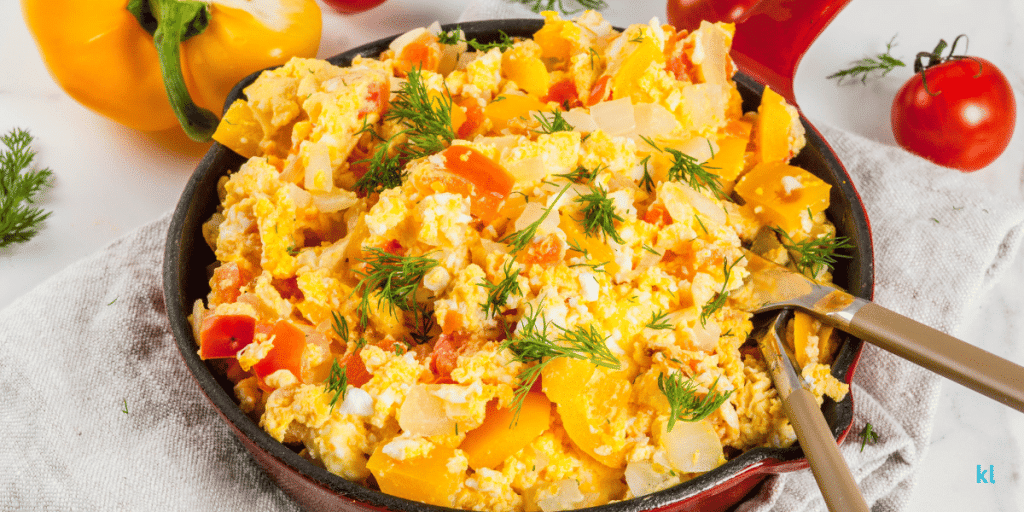
Pro Tip: Avoid foods that can irritate your digestive system, like processed snacks, fried foods, or anything with a lot of sugar. These can slow down digestion and leave you feeling sluggish—definitely not what you need right after surgery.
Remember, your body just went through a major surgery, and giving it the right fuel is key to feeling better. Take it one meal at a time, and don’t forget to hydrate—your body (and your C-section scar) will thank you!
Quick and Easy Meal Ideas for New Moms
Let’s face it: cooking during the postpartum period can feel like climbing a mountain. Between feeding schedules, diaper changes, and finding a moment to breathe, spending hours in the kitchen isn’t realistic.
That’s where quick and easy meal ideas come in handy. These meals and snacks are simple to make, require minimal cleanup, and are packed with the nutrients your postpartum body needs to heal and thrive.
One-Pot Dishes for Minimal Cleanup
One-pot meals are a lifesaver for new moms. They’re quick, hearty, and don’t leave you with a mountain of dishes. Try making a chicken and vegetable stir-fry over rice or a pasta dish loaded with spinach and cherry tomatoes. Another great option?
A one-pot quinoa and veggie casserole—just toss everything into a pot, season it, and let it cook while you focus on your little one. These quick postpartum meals are perfect for fueling your body without the hassle.
Smoothie Recipes Packed with Nutrients
Smoothies are the ultimate postpartum meal idea—they’re fast, customizable, and packed with healing foods for new moms. Toss some frozen berries, a banana, spinach, Greek yogurt, and almond milk into a blender for a quick breakfast or snack.
Need an energy boost? Add a scoop of protein powder or some chia seeds. Smoothies are also great for sneaking in postpartum vitamins and omega-3s without even noticing!
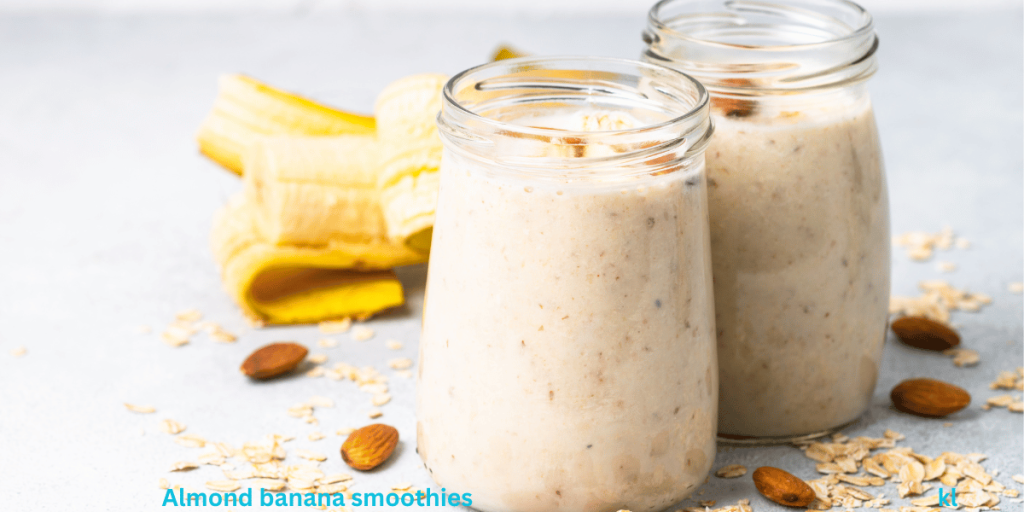
Overnight Oats for Easy Grab-and-Go Breakfasts
When mornings are hectic, overnight oats can save the day. Combine rolled oats, milk (or a plant-based alternative), and your favorite toppings like sliced almonds, chia seeds, and fresh fruit.
Let it sit in the fridge overnight, and you’ve got a quick breakfast for new moms that’s ready to eat whenever you need it. Bonus: they’re rich in iron and fiber, both of which are great for postpartum recovery.
Soups and Stews for Comfort and Healing
There’s something so soothing about a warm bowl of soup, especially during recovery. Healing soups for postpartum, like chicken noodle soup or lentil stew, are full of protein, veggies, and hydration.
A slow cooker is your best friend here—just throw in the ingredients, set it, and forget it. Make a big batch to freeze in portions, so you always have something nutritious on hand when time is tight.
Simple, Healthy Snacks
Snacking is essential when you’re a new mom. Keep nutrient-rich snacks like trail mix, energy bites, or hard-boiled eggs within arm’s reach.
You can also try making your own granola bars with oats, honey, and almond butter for a sweet yet healthy treat. These snacks provide quick bursts of energy without the crash, keeping you fueled through those long days (and nights).
Slow Cooker and Freezer-Friendly Meals
For days when you can barely think about dinner, slow cooker meals for postpartum are a game-changer. Think shredded BBQ chicken, veggie chili, or beef stew—set it up in the morning, and dinner is ready by evening. Another pro tip?

Stock your freezer with postpartum freezer meals like lasagna, casseroles, or pre-made smoothie packs. You’ll thank yourself later when all you need to do is reheat and eat.
Remember, this is about nourishing yourself so you can take care of your baby and feel your best while doing it.
Meal Prep Tips for the Postpartum Period
Whether you’re a pro in the kitchen or someone who usually relies on takeout, these meal prep tips for new moms will help you feel prepared, nourished, and supported during this special (and often exhausting) time.
How to Batch-Cook and Freeze Meals
Batch cooking is a meal prep strategy every new mom should embrace. The idea is simple: cook large portions of a few meals and freeze them in individual servings.
Think casseroles, soups, and pasta dishes—postpartum comfort foods that are easy to reheat and packed with nutrients.
Some favorites include:
- Chicken and vegetable soup: Great for healing and hydrating.
- Baked ziti: A hearty meal that freezes well.
- Black bean chili: Packed with protein and fiber for postpartum recovery.
Label each container with the meal name and date, so you can grab what you need without rummaging through the freezer. Bonus tip: freeze meals flat in zip-top bags to save space!
Stocking Your Pantry with Postpartum Staples
A well-stocked pantry is a new mom’s secret weapon. Make sure you’ve got the essentials for quick, nutritious meals and snacks. Some postpartum meal prep ideas for pantry staples include:
- Whole grains: Oats, quinoa, and brown rice for easy sides or breakfast.
- Canned goods: Beans, tomatoes, and broths for soups and stews.
- Snacks: Nut butter, trail mix, and crackers for quick energy boosts.
- Freezer items: Pre-chopped veggies and frozen fruits for smoothies or stir-fries.
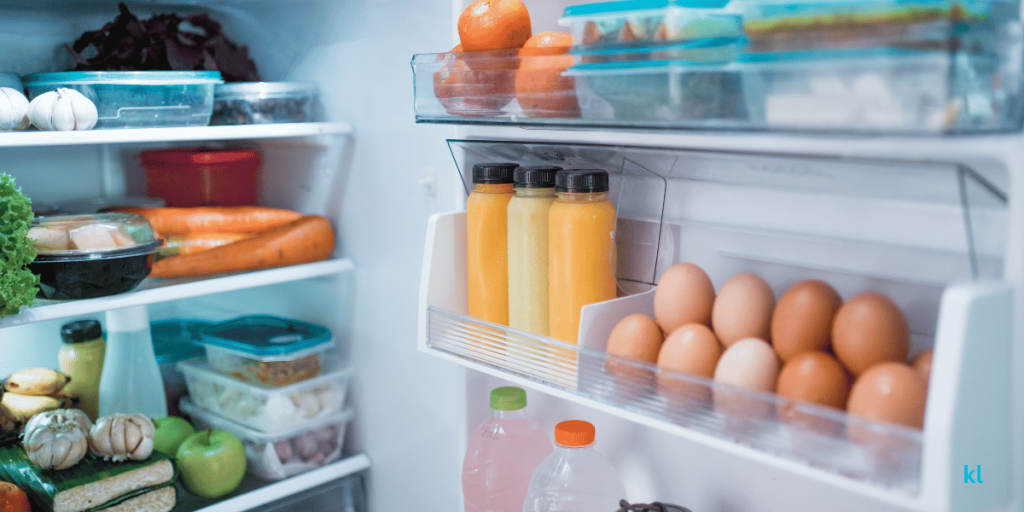
By keeping these staples on hand, you’ll be able to whip up meals without having to run to the store—or send someone else at the last minute!
Time-Saving Kitchen Tools for New Moms
The right kitchen tools can make postpartum meal prep so much easier. A slow cooker or Instant Pot can be a lifesaver when you want to toss ingredients in and forget about them. Imagine waking up to oatmeal already cooked or having a stew ready for dinner.
A high-powered blender is another must-have. Use it for smoothies, soups, or even purees for when your baby starts solids.
And don’t underestimate the convenience of a food processor for chopping veggies or mixing up energy bites. Investing in these tools can make your postpartum meal plan ideas come to life with minimal effort.
Incorporating Family and Friends into Meal Preparation
Don’t hesitate to lean on your support system for meal prep. Family and friends are often eager to help but might not know what you need. Create a list of meal kits for postpartum moms or dishes that freeze well and share it with them.
Another idea is to host a meal prep party before your due date. Get everyone together to assemble freezer meals—think lasagnas, enchiladas, or breakfast burritos.
It’s a fun way to stock up while spending quality time with loved ones. After the baby arrives, don’t be shy about accepting home-cooked meals when visitors offer.
. Remember, you deserve care and support just as much as your baby does—so let those slow cookers and helping hands do some of the work!
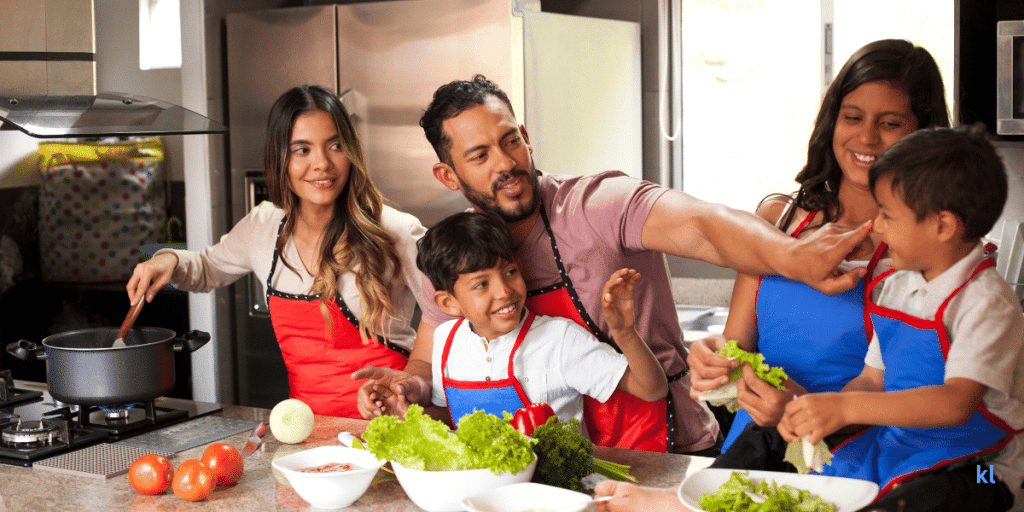
Special Dietary Considerations
Nutrition plays a crucial role in healing, especially after the physical challenges of childbirth, so let’s dive into some of the special dietary considerations that can help you feel your best during the postpartum period.
Dietary Modifications for Specific Recovery Needs
Sometimes, postpartum recovery requires special dietary adjustments to meet specific health needs. For example, if you’ve experienced significant blood loss during childbirth, you may need to boost your intake of iron-rich foods postpartum to replenish your iron stores and combat any fatigue.
These can include leafy greens, lean meats, and legumes. Iron is crucial not only for your energy levels but also to support the production of milk if you’re breastfeeding.
For moms dealing with postpartum wellness challenges like mood swings or fatigue, incorporating nutrient-dense foods that help balance hormones and provide long-lasting energy is essential.
Whole grains, legumes, and healthy fats are great additions to a postpartum diet. A balanced breastfeeding nutrition plan that includes these foods will also help sustain milk production while nourishing your body.
Vegetarian and Vegan Postpartum Nutrition
If you follow a vegetarian or vegan postpartum nutrition plan, it’s important to be mindful of key nutrients that are often more challenging to get from plant-based sources.
Protein is crucial for healing, so incorporating legumes, beans, tofu, and quinoa into your meals is important. You should also focus on plant-based sources of iron, such as spinach, lentils, and fortified cereals.
Additionally, breastfeeding diet considerations for vegans or vegetarians often include getting enough vitamin B12, omega-3 fatty acids, and calcium, which can sometimes be harder to absorb from plant-based foods.
For example, fortified plant-based milks or supplements may be necessary to meet your vitamin B12 and calcium needs. Ensure that your plant-based diet provides a wide variety of fruits, vegetables, and whole grains to meet your maternal nutritional needs.

Managing Dietary Restrictions
If you have any dietary restrictions or food sensitivities, like gluten intolerance or dairy allergies, it’s still possible to nourish your body for postpartum recovery.
With the right planning, you can still incorporate essential nutrients into your meals. For example, if you’re gluten-free, focus on whole foods like quinoa, sweet potatoes, and rice to ensure you’re getting the necessary carbohydrates for energy and recovery.
For those with dairy allergies, there are plenty of plant-based alternatives for calcium, like almond milk, soy milk, or fortified coconut yogurt.
It’s also a good idea to work with a nutritionist or healthcare provider to ensure you’re getting all the necessary postpartum diet tips and postpartum wellness nutrition for a smooth recovery and energy during the busy newborn months.
Personalized Nutrition Planning
Every mom’s postpartum experience is different, which means personalized dietary healing strategies can be a game-changer. If you’re unsure where to start or what to prioritize in your recovery, consider reaching out to a nutritionist who specializes in maternal nutritional needs.
A professional can help tailor your diet to support your specific recovery process, whether you had a C-section, a vaginal birth, or are managing other health conditions.
A personalized nutrition plan can also help you address challenges like low milk supply or fatigue, ensuring you’re getting the right mix of nutrients to promote healing and breastfeeding nutrition.
It’s not just about eating healthy, it’s about fueling your body with the best foods to meet your unique needs as a new mom.

Postpartum recovery requires care, patience, and the right nutrition to help your body heal after childbirth. By focusing on quick, nutrient-dense meals and practical preparation strategies, you can set yourself up for success.
Whether you’ve had a vaginal delivery or a C-section, these tips: Quick & Easy Postpartum Nutrition for Vaginal & C-Section Recovery will make your recovery journey smoother. Take it one day at a time, and don’t forget to nourish both your body and soul.

